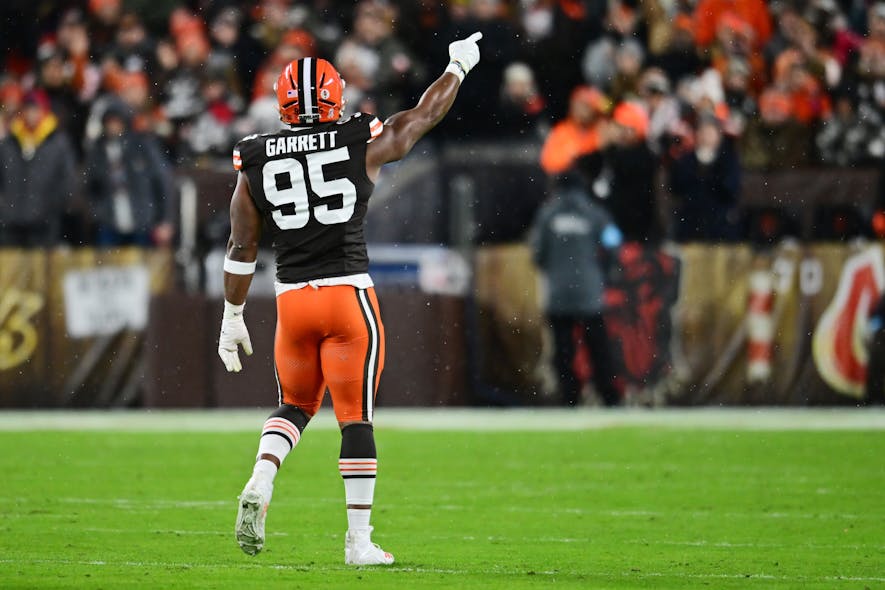There's a lot of strong dynasty analysis out there, especially when compared to five or ten years ago. But most of it is so dang practical-- Player X is undervalued, Player Y's workload is troubling, the market at this position is irrational, and take this specific action to win your league. Dynasty, in Theory is meant as a corrective, offering insights and takeaways into the strategic and structural nature of the game that might not lead to an immediate benefit but which should help us become better players over time.
Turning the Lights Out on the Season
For most leagues, Week 14 represents the last week of the regular season. While many teams have been mathematically eliminated for a while, Tuesday morning marks the official end of the season for around half of all dynasty teams. No more lineups to be set, no more games to be played, all that remains is to clean out your locker and turn the lights off on your way out the door.
I would love to believe that none of my readers would count themselves among that number, but base rates rule everything around me (B.R.R.E.A.M.), so I'm guessing the true value is... fairly close to 50%. That's unfortunate, but it's also an opportunity. Once freed of the responsibility of fielding a valid lineup, we can cut all our dead weight and fill those spots with lottery tickets that have a chance of paying out next year.
And for most teams in most leagues, the place to start is simple: cut all of your defenses.
Defense Doesn't Matter (in April)

Some might find this counterintuitive. If your league breaks down scoring by position, I suspect you'll see the difference between the team with the most productive defenses and the team with the least is quite substantial. Having the highest-scoring defenses provides a significant edge in fantasy.
In the most extreme example, one of my leagues uses heavy performance-based scoring, with defenses losing a point for every point they allow. In that league, the difference between the Minnesota Vikings (225 points) and the 11th-place Seahawks (122 points) is bigger than the difference between Justin Jefferson (254 points) and 37th-place Rashod Bateman (152).
Cutting the Vikings seems crazy; if the best defenses are so valuable, shouldn't you keep Minnesota so you can benefit next year, too? If holding defenses in April gave you a better shot at rostering one of the highest-scoring defenses in October, it'd easily be worth doing.
But it doesn't, so it's not.
The top 10 defenses in that league last year were the Ravens, Bills, Cowboys, 49ers, Chiefs, Steelers, Raiders, Buccaneers, Jets, and Saints. In 2023, the average rank of those ten defenses was 5.5. If defense was perfectly stable from year to year, the average rank today would also be 5.5. If defense was perfectly random, the average rank today would be 16.5.
The actual average rank of those defenses today is 17.5. There are as many defenses in the Top 12 (the Bills and Steelers) as there are in the Bottom 6 (the Cowboys and Raiders).
Defensive Performance is Rarely Predictive
Does that league's scoring make it a crazy outlier? No. In standard Footballguys scoring (which is relatively ungenerous to defenses), the Top 10 units last year were the Cowboys, Dolphins, Ravens, Bills, Jets, Browns, Colts, Giants, Raiders, and Steelers. Today, the average rank of those units is 17.8. I checked two other scoring systems, one of which relied heavily on yardage allowed and another of which placed disproportionately high weight on sacks and turnovers. The average rank of last year's Top 10 defenses in the yardage-heavy league is 18.9. The average rank in the turnover-heavy league is 18.1.
(In the yardage-heavy league, half of last year's Top 10 defenses rank in the Bottom 10 so far this year.)
Again, if you were choosing ten defenses completely at random, odds are the average rank of those ten defenses would be 16.5, so "last year's Top 10 defenses" perform worse than chance. And it's not a 2024-specific phenomenon; the amount fluctuates from year to year, but across a number of years and a number of scoring systems, the Top 10 defenses in Year N average a ranking of around 17 in Year N+1. This year's top defenses are no more likely to be top defenses again next year than any other defense.
Where Do Top Defenses Come From?
What if we look in the other direction? If we assume we need a top defense to compete, where would we have found them? Everywhere.
Continue reading this content with a ELITE subscription.
An ELITE subscription is required to access content for Dynasty leagues. If this league is not a Dynasty league, you can edit your leagues here.
